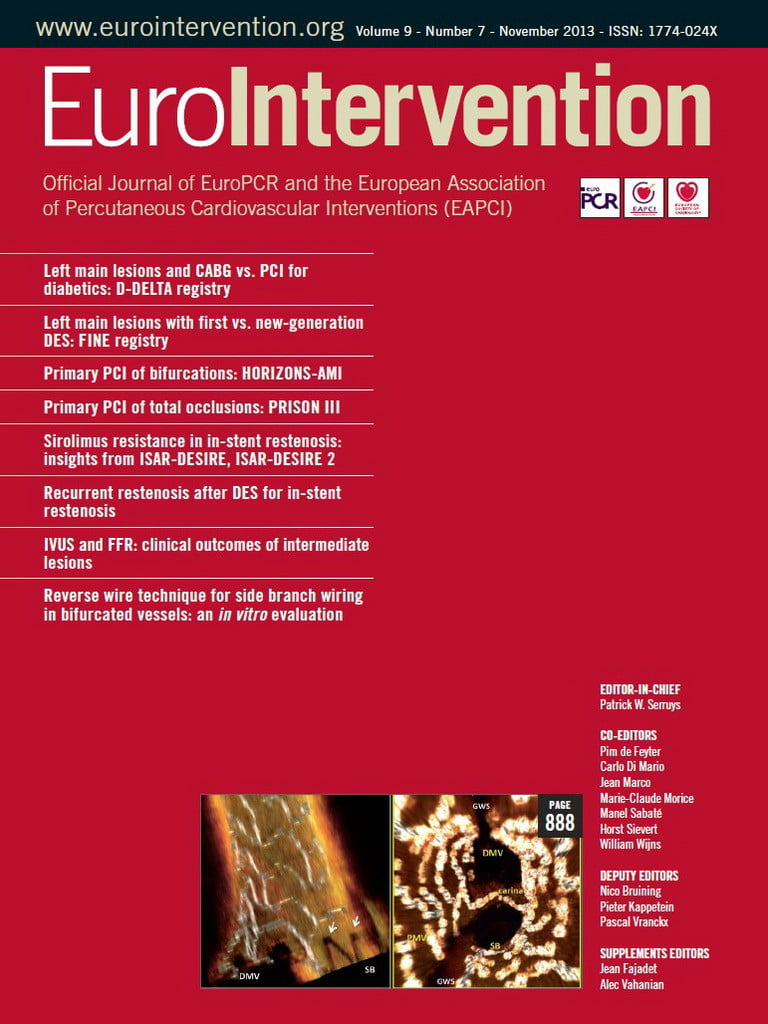Within the EAPCI, the work being done by committees is critical to the advancement of our association. Since its creation, it is these smaller, very active groups led by dedicated individuals that have played a key role in the evolution of the EAPCI and our specialty.
Today these groups are doing a fantastic job, but there was still an aspect that was missing in the life of our association: we needed to address the question of women. We needed to do this on a professional level, as doctors choosing to become Interventional Cardiologists, accompanying women through their careers as interventionalists and as members of our association, and we needed to address in detail the question of women’s cardiovascular care in today’s society, examining the different issues that specifically impact women. To be able to do this effectively, we needed, within our association, a committee dedicated to these questions, a “Women’s Committee” committed to a new era of interaction and exchange of knowledge and practice specifically by and for women in Interventional Cardiology.
Today we are proud to announce the creation of just such a committee to be chaired by Julinda Mehilli and Josepa Mauri.
Each committee within the EAPCI advises the entire association and the Executive Board on its particular expertise. These committees include “Training and Education”, led by Lino Goncalves and Martine Gilard (who played a central role during the creation last year of the ESC’s eLearning platform); the “Website and Communications” committee, with Bernard Chevalier and Andreas Baumbach; the “International Affairs and National Societies” committee, co-chaired by Volker Schächinger and Marc de Belder; the “Scientific Programme” committee, with Marco Roffi and Giulio Guagliumi; “Clinical Research”, led by Stephan Windecker and Marco Valgimigli; the “Fellowship” committee, with Michael Haude and Adam Witkowski (which was the subject of an EAPCI EuroIntervention focus article last spring); “Databases and Registries”, run by Peter Ludman and Fran Weidinger; and “EuroPCR Relations”, led by Christoph Naber and Javier Escaned.
One of the newest committees formed within the EAPCI is the “New initiatives for young interventionalists”, simply called the “Young Interventionalists”, which, under the direction of Gregory Ducrocq and Davide Capodanno, has been extremely successful in bringing attention to – and for – the younger specialists and fellows, not only in their participation in the different EAPCI sponsored meetings like EuroPCR, where they created their own special “track within the tracks”, but also in the creation of CathGO, a new search engine designed to “boost fellows’ mobility and training across Europe”.
For our new Women’s Committee, the challenges are clear. We can look at two points: first, professionally, today around 60% of all medical students are women, and yet fewer than 10% are becoming interventional cardiologists; second, from a clinical viewpoint, when we look at the statistics concerning STEMI, we see that its diagnosis is often either incorrect or delayed in women.
Our new committee will focus on these two broad aspects of women in interventional cardiology: as practising specialists and as patients.
We welcome our new Women’s Committee, wishing them the same success as the “Young Interventionalists”. We are confident that they will succeed, knowing that the two co-chairs, Julinda Mehilli and Josepa Mauri, represent the very best in our speciality: Julinda Mehilli of the Munich University Clinic, Ludwig-Maximilian University in Munich, Germany, is renowned for her excellence in research, and Josepa Mauri of the Hospital Germans Trias i Pujol, Badalona, Spain, a former President of the Spanish Working Group of Interventional Cardiology, has great experience in education.
It is the role of the EAPCI to encourage female physicians to choose an interventional career, a career that can include both research and clinical work. This newly formed committee for women will examine the gender-related disparities that exist within our profession and also clarify the needs and aspirations of female specialists. Like the “Young Interventionalists”, I am sure that they will find creative responses to these questions, producing new sets of ideas to address them, and will work closely with the Executive Board of the EAPCI to create strong foundations for the future and continued participation of women within our specialty.
On behalf of the executive board of the EAPCI, we warmly welcome you…

